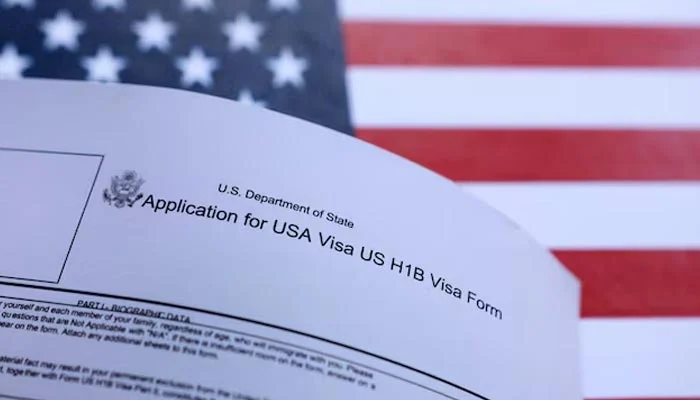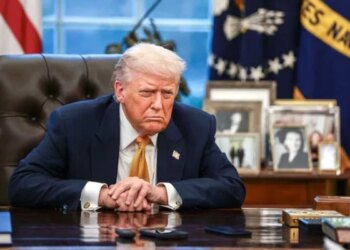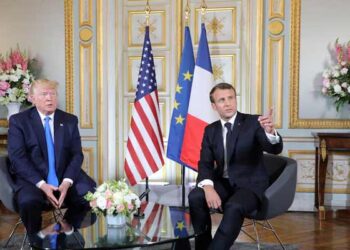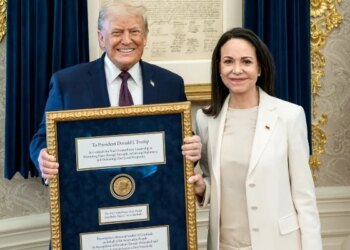Select Language:
A group of unions, employers, and faith-based organizations took legal action on Friday to stop President Donald Trump’s attempt to impose a $100,000 fee for new H-1B visas granted to highly skilled foreign workers.
This lawsuit, filed in a federal court in San Francisco, is the first challenge to a proclamation Trump issued two weeks ago, which introduced the fee as part of a broader effort to tighten immigration policies.
Among the plaintiffs are the United Auto Workers union, the American Association of University Professors, a nurse staffing agency, and several religious groups. They contend that Trump’s authority to limit the entry of specific foreign nationals does not permit him to override the legal framework that established the H-1B visa program.
A White House spokesperson, Abigail Jackson, responded in a statement, claiming that the Trump administration’s actions are lawful, aiming to prevent companies from overloading the system, suppressing wages for American workers, and providing predictability for employers seeking top talent from abroad.
The H-1B program enables U.S. companies to hire foreign specialists, particularly in tech industries that heavily depend on H-1B visa holders.
Critics argue that the visa program is often exploited to replace American workers with cheaper foreign labor, though many corporations and industry groups emphasize that H-1Bs are essential for filling skill shortages.
Currently, employers pay H-1B sponsorship fees ranging from $2,000 to $5,000, varying based on company size and other factors.
Trump’s recent order forbids new H-1B visa recipients from entering the U.S. unless their sponsoring employer pays an additional $100,000 fee. The order exempts those already holding H-1B visas or who submitted applications prior to September 21.
In an unprecedented move, Trump cited his authority under federal immigration laws to restrict entry of certain foreign nationals deemed harmful to American interests. He argues that the presence of many low-wage workers in the H-1B program has compromised its integrity and threatens national security by discouraging Americans from pursuing careers in science and technology.
He also claimed that the “large-scale replacement of American workers” through H-1B visas undermines the nation’s economic stability and security.
The plaintiffs argue that Trump lacks the constitutional and statutory authority to fundamentally alter the visa program and cannot unilaterally impose fees or taxes to generate revenue—that power belongs solely to Congress.
“The proclamation transforms the H-1B program into one where employers must either ‘pay to play’ or seek a ‘national interest’ exemption, which will be at the Secretary of Homeland Security’s discretion, opening the door to unfair enforcement and corruption,” the lawsuit states.
The groups allege that agencies, including U.S. Citizenship and Immigration Services and the State Department, implemented new policies following the proclamation without proper rulemaking procedures or assessment of how “extorting exorbitant fees will stifle innovation.”
The H-1B visa offers 65,000 slots annually for foreign workers in specialized fields, with an additional 20,000 for those with advanced degrees. These visas are valid for three to six years.
Last year, India was the top beneficiary of H-1B visas, accounting for 71% of approved petitions, followed by China at 11.7%, according to government data.







